Success is a family affair
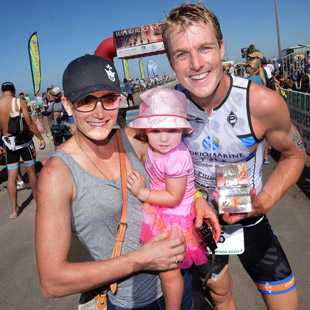
With his 7th place at Kona and win at the Abu Dhabi International this March, Tyler Butterfield has arrived among the elite in the long course triathlon game. While it has taken him a long time to fulfill his early promise, it has been a steady progress that is inextricably related to family. It began with the strong support of his mom and dad, and now it is wrapped up in the remarkable partnership he has forged with his equally athletically gifted wife Nikki and fueled by the joyful bonds they have made with their two young children Savana and Walker.
When Nikki Butterfield won the prestigious 2012 Abu Dhabi International women’s elite title and the $50,000 prize money thirteen months after the birth of daughter Savana, husband Tyler Butterfield played a substantial supportive role. When Tyler made big career advances in 2013 leading up to his win at Abu Dhabi this March, wife Nikki focused on the birth of their second child Walker and doing everything she could to allow Tyler to focus on training and enjoying their young family.
Both members of this talented triathlon duo have found you can win triathlons and raise very young kids at the same time, but they find that managing this stressful multitasking works best when one partner is the primary competitor and the other plays the supporting role. The wonder in all this is they have alternated the roles so seamlessly and successfully.
While both Tyler and Nikki credit their recent success to the culmination of ten years of professional sport coming together with a sense of contentedness with their lives outside of triathlon, the couple openly admits neither of them would still be in the sport if it weren’t for the support of Tyler’s father Jim, who has not only supported his son in the years leading up to him being able to support himself and his young family, but also helped Nikki while she simultaneously completed her MBA and attempted to qualify to represent Australia at the Olympics in 2008. Nikki was first reserve for the Australian women’s cycling team for Beijing after a controversial selection (Butterfield was first Australian in all but one selection race) which ended with a discontented Nikki returning to triathlon after four years on the European pro cycling circuit. Tyler also rode in Europe for four years – three years on the French amateur Team Vendee U and for one year as a neo-pro on what’s now known as Garmin-Slipstream.
While Tyler is a twelfth-generation Bermudian on his father’s side and American on his mother’s, Nikki’s heritage is war-torn Europeans who immigrated to Australia. Perhaps the contrast in privileged versus less fortunate backgrounds accounts for the differences in Tyler’s and Nikki’s personalities.
FAMILY DYNAMICS
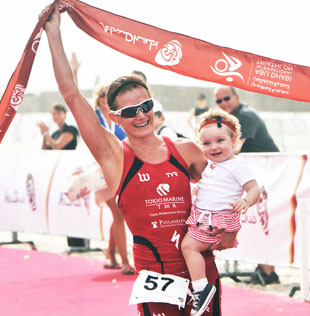
Slowtwitch: How much has Nikki helped your triathlon career?
Tyler Butterfield: Nikki’s support is huge. It is the little things as much or more than the big things that help, especially leading into a race. With her being so much more direct than me she shields me in a way so I can just focus on what I need to do.
ST: What are the differences between you and Nikki?
Tyler: Nikki has always been more serious and sterner than me. I definitely don't go with hard line – I have always tended to keep things light. If Savana is crying for example, I generally tickle her and make her laugh. That is how I get her to do what I want – a bit of bribing here and there with a cookie too. Nikki and I have a great relationship, it works even though we’re so different in some ways. But saying that, we’re also quite similar in other ways.
ST: What is the difference in your backgrounds?
Tyler: Growing up in Bermuda you learn young to always be polite and humble – it’s a very small country and everyone knows everyone. I was also probably a bit spoilt growing up too which is maybe why I turn everything into a joke and don’t take myself too seriously. I try to make sure I am always patient with people even if I am tired. Nikki grew up with less, so if she wasn’t racing well it was game-over for her. That makes you much more direct and not tolerate time spent messing around. She’s always telling me to hurry up or to stop rambling on to someone at the gym. She’s much more productive than me — but sometimes I remind her to slow down and just have fun.
ST: Have you adapted your temperaments over time?
Tyler: After twelve years together, Nikki has learnt to be diplomatic and I’ve realized that sometimes being direct is being productive. I have taken some of Nikki’s strengths and she has taken some of my strengths — I guess you could say we’ve met in the middle.
ST: Nikki is not racing now. When might she return to competition?
Tyler: Nikki changes her mind on that issue about five times a day, but she is definitely going to leave it until after Kona. She knows the stress of preparing for a World Championship and she puts a lot into helping me race. I don’t have a coach so Nikki is it. As I mentioned earlier, she does so much for me in terms of taking care of things, but it’s also talking through everything. I’m always rambling on about something. Most of the time she doesn’t have to say much back, I just need to talk it through and I come to my own conclusion. Other times it is very much Nikki’s influence, wisdom and guidance that will stop me over-training and moving in the right direction. Before Abu Dhabi I wanted to do a 300km ride; Nikki told me 250km was better and don’t be an idiot. On that one I did need to be reined in. I split the difference that day, but I often need to be told to hold back and not go over the edge.
ST: Do you have a coach?
Tyler: As I mentioned, I don’t have a coach so Nikki is the one listening to all the day-to-day backs and forths. I start with a weekly template. Some things I keep the same, but I vary things a lot day to day depending on how I’m feeling, whether I went further or harder than I intended the day before or week before, if there’s a lot of outside stress going on in our lives, if I feel a niggle starting – there’s a lot that goes into deciding what to do. On the other hand, I listen to people when they offer me advice and tips. Actually I generally listen to everyone! Anyone who knows me will tell you I love talking about different theories, and if I think something makes sense to me, then I’ll test it. If it works, yes I will use it.
ST: Do you get any advice from Dave Scott?
Tyler: Nikki trained with Dave when she won Abu Dhabi [in 2012] so I got to see a bit of his style of training and he is at the pool sessions I do. Every once in a while I’ll ask his advice on something, but I don't want to take advantage of asking him a lot of random questions on the pool-deck for free. He is a serious guy and knows what he is doing and I think he is one of the best coaches in the world, but I don’t like having a coach because like this morning when I didn’t go to the early swim session, I don’t want to have to convince anyone when I choose to miss a session. It takes me long enough to justify it to myself, I don’t want to then repeat that and justify it to a coach. I have met with Dave a couple of times for a consultation and I’ve integrated some of that into my program. But my program also has parts of what I was doing as a junior with Bill Davoren on the Gold Coast where Nikki and I first met. It has parts of what I picked up when Nikki was training with Michael Kruger last year, bits of advice I’ve gotten from Chris (McCormack), bits from Crowie as I’ve done a fair bit of training with him. Recently I’ve been doing quite a few sessions with Tim Don, so it’s really a mix of everything I’ve learnt over the last or more 10 years.
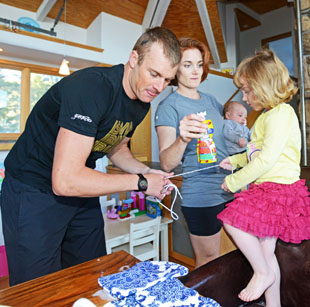
ST: How do you and Nikki divide up the household and child care responsibilities?
Tyler: Right now, Nikki tries to make it so that I train, play with the kids, and she does everything else. If it’s a night when Savana is being a little rascal or Nik is having a hard time getting Walker to sleep, I’ll put Savana to bed. But most of the time she takes care of pretty much everything – keeping the house in order, grocery shopping, preparing meals, just about everything with the kids (I just get to play with them!). She drafts most of my emails and then just runs them by me before sending, books all my travel arrangements, keeps our calendars up to date so I know what’s going on, invoicing sponsors, all our budgeting, paying bills, drafts press releases, you name it. Actually I’m a little bit embarrassed listing all that – it makes me sound lazy!! The good thing is that we both love what we’re doing for the moment. If that changes and Nikki wants to race again we’ll just readjust again. It's a moving target for us. We try to be flexible.
ST: You have been very good at supporting one another’s careers. But unlike some, you two have alternated the supporting role. What is the strategy behind it?
Nikki Butterfield: When I came back after Savana was born [in 2012], Tyler wasn’t racing as well as he is now, so it made sense for us to both race and to share responsibilities. I still did most of the things I take care of now, but Tyler and I organized our schedules so we could both train. He took care of almost all of my equipment, and spent a lot of energy keeping me happy – I’m not the easiest sometimes. It was a great time for us all but just so hectic I can’t explain to you – it was chaos management 24/7. Then I stopped racing last year as the pull for another baby was too strong, and I was starting to feel out of control in terms of keeping up with everything. Our family was just too overloaded. Now with Tyler having such a breakthrough six months where he showed he could do something in Kona, it seems crazy to change anything leading up to this year’s race, especially since I want to hang out with Walker as much as possible in this first year anyway.
ST: Will this be the end of your serious racing career?
Nikki: I’m certainly open to racing again. I’m already running a fair amount, I just will never be the priority again — not at least while Tyler is doing so well. He keeps threatening to take a year off though, so we can switch roles, but we’ll see if we ever actually do that. I can’t imagine him up to his ears in dishes, laundry, and emails!
ST: Where do you put both of your Abu Dhabi winner’s trophies?
Tyler: Nikki’s trophy was in the garage until I came home with mine recently, then we thought it was kind of fun to have them side-by-side. So for now they’re in our living room, but they’ll probably both end up in the garage. Not because we don’t value them, it’s more that when we’re home with our kids it’s nice to just switch off from sport.
ST: Which trophy is better?
Tyler: Nikki’s is very different; hers is made of metal and looks like a Frisbee. Mine is much bigger and has a lot of glass, we like them both for different reasons.
ST: How nice is it that you both won the same big international race?
Tyler: It was neat we both ended up with the titles, you can’t plan something like that. Of course the name of the game is winning but it's not that simple. We both like to challenge ourselves and see what we get. That seems to work out for the both of us.
BEHIND THE BREAKTHROUGH
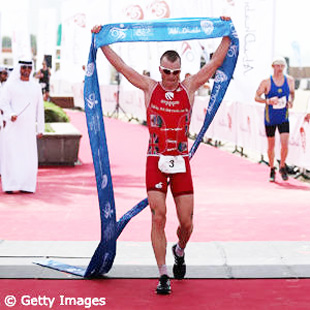
ST: What was the key point in your victory at Abu Dhabi?
Tyler: Four weeks before Abu Dhabi this year I got sick. Because of that, I went into the race more rested and less confident and I was in a conservative mindset. I did panic a little – two weeks before I did two long rides. One lasted eight-and-a-half hours. Sometimes when your preparation isn’t perfect, it takes the pressure off and that is always good for me. Freddy [Van Lierde] was the strongest on the day, but he pushed a lot on the bike and I think that caught up with him on the run. [Van Lierde was in the lead pack off the bike, but fell to 4th with a 1:19:38 run — 7 minutes slower than his 2013 split] Freddy was the strongest, but I saw how the race on the bike leg was playing out. I did my fair share of work at the front but Freddy worked harder controlling the race, so I had more left at the end.
ST: Which race has been most important to your career?
Tyler: Certainly my 7th place finish at the 2013 Ironman World Champs was an important breakthrough, but my most important race was Abu Dhabi in 2013. That was when I realized – ‘Hold on, you can mix it up with the big boys. ’ Eneko and Freddy were ahead of me as I came out of the water [90 seconds down], so I had to ride really hard to catch them. Our bike splits were all within 30 seconds of one another over the 200k [4:48:13 to 4:48:21]. I took encouragement that I was able to ride hard and hang on in the run.
ST: The test at Abu Dhabi is the bike?
Tyler: I learned at Abu Dhabi in 2013 that I could go into the red zone, push to catch up and recover. I felt I had a terrible run [1:17:47 for the 20k] – Melissa [Hauschildt] outran me [1:16:42] and Bart Aernouts [1:12:13] almost caught me. By my standard, I didn’t run what I wanted, but it was the best result in my triathlon career. I wasn't happy with my run in Abu Dhabi 2013, but I had the best result. Then I realized this was triathlon. If you don't have the fastest swim, bike or run but you win at the end of the race, you are still the winner.
ST: What led to your rise in profile and results in in 2013 and early 2014?
Tyler: The biggest factor in my success is the fact that I have been doing triathlon professionally for over a third of my life – 11 years. My first pro race was in 2002. I did the Commonwealth Games in 2002 and I did quite well at the junior worlds that year [3rd]. I was living in Australia and training with Brad Kahlefeldt, who was racing professionally as an Under 23 athlete. My 2013 breakthrough came because it is 10 years on – and I have learned a lot. Some of that is physical – you get stronger. The other part is experience – learning how to race and how to train.
ST: But without innate talent, all that work would not make you successful.
Tyler: I agree somewhat, but every year I had some sort of results that were decent enough for people to believe in me. When other people believe in me, I find it really motivating. That’s why when Cervélo offered me a lifetime deal right before Abu Dhabi I thought, ‘Hang on! These guys think I’m worth that kind of investment — now it’s time to fulfill their belief.’
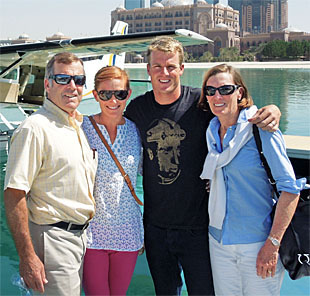
ROOTS
ST: Your family is quite modest, but your parents passed on some serious athletic genes, which helps explain why your potential is quite high.
Tyler: Thanks. My dad Jim was in the 1972 Olympics in Munich for rowing, he also did the Commonwealth Games marathon. His fastest marathon I think was 2:27 or 2:28. My mom’s marathon PR was 2:38:44 and she did that in the first US women’s Olympic marathon trials where she finished 23rd. Joan Benoit won that one [in a time of 2:31:04] and went on to win the gold medal in Los Angeles. My mom also finished 4th at the 1985 Boston Marathon.
ST: How much do your parents’ genetic gifts contribute to your success?
Tyler: My mom has a diesel engine — her 10k time was never fast, but she could maintain that pace through a marathon. My dad finished 7th at Ironman Hawaii in 1981 and had a fast marathon split [3:05], well ahead of the winner, John Howard, and Scott Tinley, who finished 3rd.
ST: That is nice – matching your dad’s finish at Kona 32 years later!
Tyler: Everyone made a big deal of that in Bermuda. It was fun to see how excited everyone was as most people remember ‘Ironman Jim’ and now I get to do something similar. I’m proud of my parents and what they’ve done; not just athletically but also how they’ve helped running and triathlon develop in Bermuda. They started both the running and triathlon clubs and were heavily involved with them when they were younger. Bermuda has given me so much it would be nice to pay the community back someday.
EARLY POTENTIAL
ST: Some people wonder where you came from to have such success in 2013 and 2014. Few people are aware that when you were a junior and Under 23 competitor you competed well with some of the biggest names in the sport today.
Tyler: I believe that my career today was based on the success I had in those races. I was 8th at Queenstown in the 2003 Under 23 Worlds. Luke McKenzie was one spot behind me, and he was 2nd at Kona last year. Paul Matthews had the fastest bike split and I had the second fastest. Javier Gomez had the fastest run and I had the 3rd fastest. This was 11 years ago and pretty much all of those names are doing very well today.
ST: How much did your early competitiveness encourage you?
Tyler: Javier won the Under 23 Worlds convincingly. His swim was two minutes faster than mine, but if you add his bike and run splits together, we were within seconds of each other. When a guy wins Under 23 worlds and you match his time on the bike and the run, you think, ‘Hold on. Let me work on my swim and maybe I have a chance at being a decent pro.’ It’s hard to get everything – swim, bike, run and the rest of your life – going at the same time so you can show it in a race. Some guys work it out younger, and some it takes longer.
ST: How has your cycling evolved after your stint in pro cycling?
Tyler: The cycling really helped my top end, which helped me in ITU, but that is not my natural talent. My power is more like a diesel, which has helped me in the Ironman. But this kind of power is useful in shorter races, too. My 3rd place in ITU Junior Worlds, I came out of the water a minute down. In an 800 meter swim I lost a minute, so I had to ride up to the lead group. In a sprint that’s a lot to make up. I was lucky enough in my junior days that Chris McCormack stayed at my house one time and gave me some tips. He said that sometimes you can't ask for help on the bike. Sometimes you just have to do it on your own. I remember in that race I asked a few people to trade pulls with me, they just looked at me like I was nuts. So even in the junior days, I biked all right. Terenzo [Bozzone] won that race, and went on to win numerous world titles since then. David Hauss was second then and he was 4th at the 2012 Olympics. So I was a solid strength-endurance runner. If it was hot, hilly or windy I ran better than if it was flat and fast. But again many of the names at the top in junior races twelve years ago are prominent now. For me, it is just the time and hard work paying off.
MIXING SHORT COURSE AND LONG COURSE
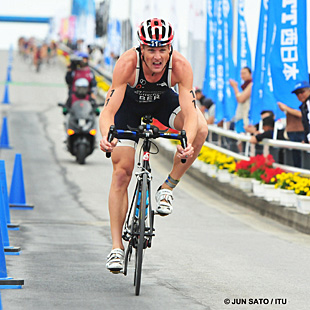
ST: Does Bermuda get behind you for triathlon?
Tyler: For the Olympic Games Bermuda really gets behind me. The whole country loves the Olympics. When you say triathlon and the Ironman, in the US it’s huge, but around the world the Olympics is the biggest stage. I am never going to do super well at the Olympics [Tyler was 34th of 50 starters at the 2012 Olympic triathlon in London], but it is still a huge opportunity and a huge honor to represent your country in the biggest short course race in the world.
ST: Will you be trying to make it to Rio in 2016?
Tyler: I don’t know if I will make Rio but for sure I will do my best to qualify a spot for Bermuda on the start line. I have to compete and get enough points to qualify my own country. And if I qualify Bermuda, I will get to go. I’ll be travelling a lot. I’m even doing my first ITU race in Mexico next month to chase points, a couple of weeks before Ironman Nice.
ST: Besides the Olympic dream, why you are going back and racing some ITU races?
Tyler: Every time I do an ITU race I have to pick up my run and my swim. You are racing two ends of the spectrum, so you are covering all the bases. It is keeping me honest. I like seeing how I compare at all different distances and levels.
ST: What is the argument to specialize at one distance? And what are the advantages of doing both at once?
Tyler: You are making your aerobic and anaerobic power band as wide and as strong as possible. By doing that, you might be giving up some in each specific area for sure. Chrissie Wellington was unbeatable in Ironman. But in 70.3 she got beaten once and in short course races she didn’t shine, yet she was the Queen of Ironman with an unbeaten IM record. If you are specific at one distance, you will be better for sure, which is what I plan to do eventually. But I’m only 31 and I believe racing ITU on and off will extend my career duration. I’d like to race until I’m 40ish if I can, and I know I wouldn’t make it nine more years doing only long-course.
PSYCHE
ST: You say you are insecure when you race. How does that mesh with some necessary confidence?
Tyler: I am not one of these people who think they are the best – I know I am not. My brother was always better than me. I did well in Bermuda races, but Bermuda only has 60,000 people. I look at it this way – even when you win a race, there is always someone out there better than you. At the same time, I don’t seek to cherry pick races. I prefer to race the best in the biggest races to see where I stand. You take the wins when you can, but you don’t let them go to your head. I use that attitude to keep me honest. I train to my best at the time and go into races with a plan and realistic goal based on how my preparation has gone and try to play my cards right.


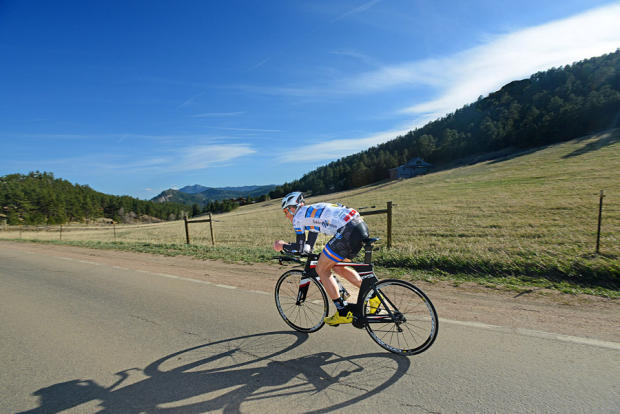
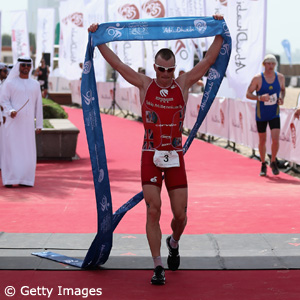
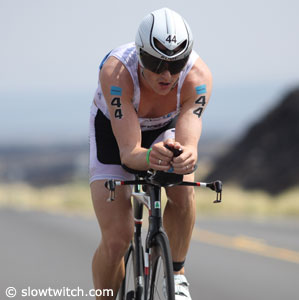
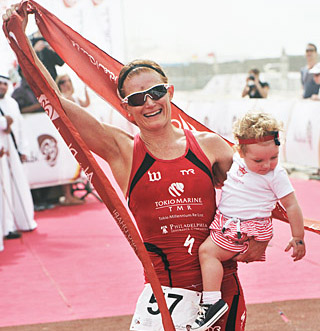
Start the discussion at slowtwitch.northend.network